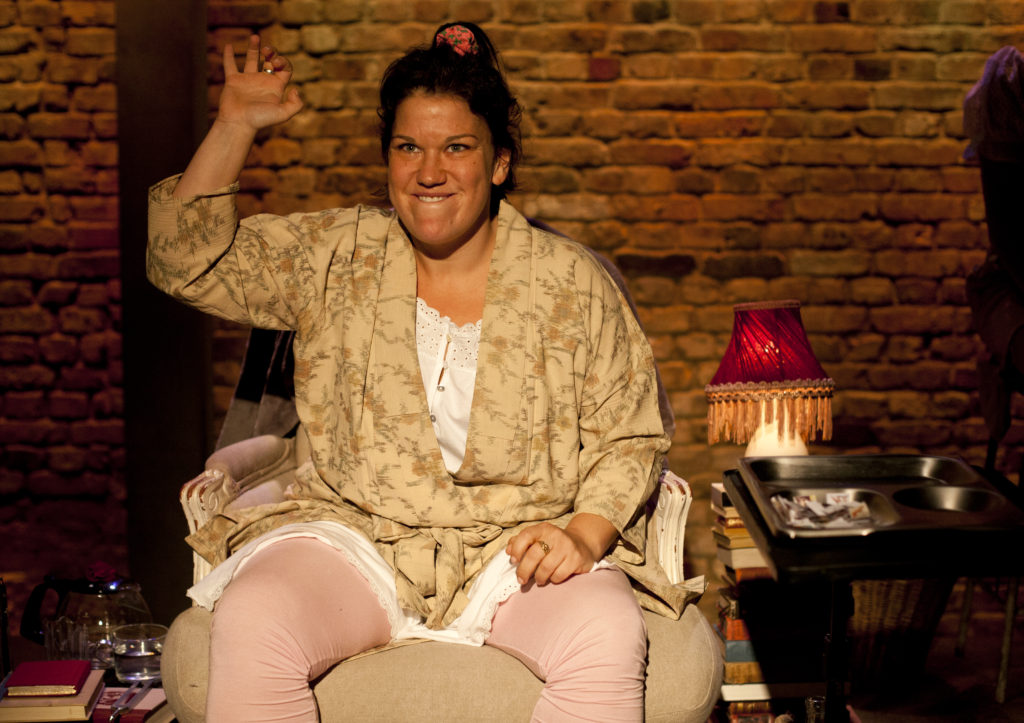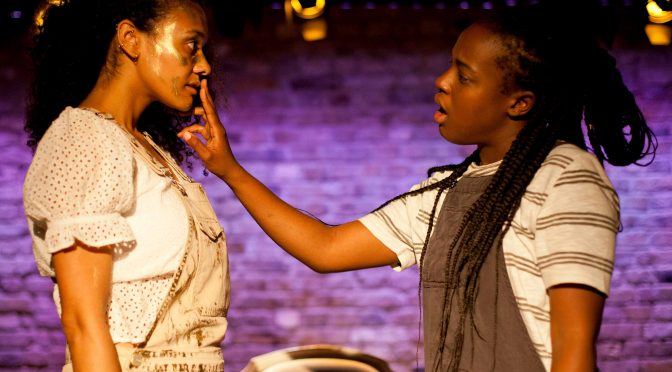While firmly rooted in the tradition of fairy tales, this 2007 piece, from experimental theatre maker Lisa D’Amour, balances magic and madness with startling originality. It will not be to all tastes, but the complexity and ambition of the text demand respect.
In a trailer park facing demolition, the housebound Irene and her daughter Annabella are joined by the title character, a golem that the youngster creates as she begins puberty. Both of the human characters tell stories that start out whacky and become truly insane. Their small world is crowded with monsters and metamorphosis. Mental illness is a topic the audience is challenged into addressing: someone should help this family… shouldn’t they? And there’s another ‘M’ – motherhood – packing the play’s emotional punch and, for my money, producing its finest moments. Many of the tales told are funny, a few provide insight into the real world and some are frustratingly opaque.
Adding to the bizarre feel, there’s a cappella singing, and percussion from kitchen equipment, with a score by Chris Sidorfsky that matches D’Amour’s otherworldly interests. You don’t often get a lullaby for a lycanthrope, after all.

As you can guess, nothing here is easy for the talented trio performing. The wonderful Beverly Rudd leads the way, grounding the show as a charismatic agoraphobic. The daughter is played by Gabrielle Brooks, who gives a tremendous performance as a young girl old before her time. Brooks’ suggestions of the wild, that D’Amour becomes fixated with, are superb. By no means least, Natasha Cottriall performs as the mythic creation, along with many smaller roles, bringing grace as well as ethereal vocals to the show.
Performing actions as they narrate them makes the demands on all the actors heavier – a lot of what occurs is supernatural – which is where director Jessica Lazar really shines. With a text that’s as much a poem as a play, it takes a close study to aid the audience and I, for one, am grateful that Lazar allows us time to absorb some of what is on offer.
Because Anna Bella Eemareally does have a lot going on, and not just in terms of topics: the imagery is wonderfully rich, the ground covered metaphorically immense and D’Amour’s imagination awe-inspiring. The perspectives that the author describes as “prismatic” in her introduction make the play a mind boggler from the beginning. And we’re warned by Irene that time and reality merge in her trailer – there’s a lot of this.
By the time we get to a dream sequence for Annabella – with racoons, foxes and wolves – the show is in danger of becoming repetitive and exhausting. In the finale, the impact of reality is little explored, making the ending for Annabella unclear. Asking a lot from an audience is an author’s prerogative. But there’s surely an irony that, unlike the fairy tales that are such an inspiration, regrettably, this show lacks universal appeal.
Until 12 October 2019
Photos by Holly Revell

